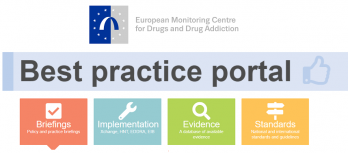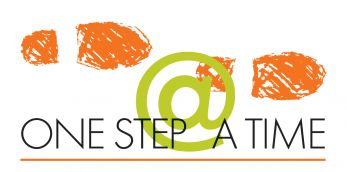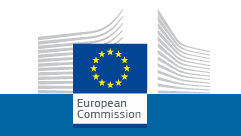"COPOLAD is assisting Jamaica and other Caribbean countries in building the blocks that are necessary for solid policymaking"
ReturnPublished on 10/05/18
He was the Deputy Chairman of the Board of Directors of the Regional Drug Law Enforcement Training Centre (REDTRAC); he is the national representative for the Inter-Governmental Task Force on Drugs as it relates to Demand Reduction; a member Hemispheric Government Expert Group on Drug Control at OAS/CICAD for the Multilateral Evaluation Mechanism, a member of the CARICOM Technical Advisory Body for the Regional Drug Demand Reduction Strategy; Chairman of the Caribbean Poison Information Network (CARPIN) among other responsibilities and high-level positions. At the NCDA, where currently work over 50 employees, he is responsible for the efficient and effective operation of the Drug Abuse Secretariat, ensuring timely development and implementation of programmes to address aspects of public education, community involvement, research and development, legal reform, security measures, health and medical measures and international cooperation, in preventing drug abuse. He is also responsible for the timely implementation of Government Policy on the indiscriminate use of drugs and issues relating to the use and abuse of drugs.

- To what extent is the existence of a national Monitoring Centre useful to provide quality and reliable information to policymakers? How much impact on the Caribbean region are having the ongoing COPOLAD activities in strengthening the role of National Drug Observatories?
A National Monitoring Centre is critical to the provision of both quality and reliable information that assists policymakers to make informed decisions, track changes in the local context and determine the extent to which evidence-based decisions achieve their intended outcomes. Jamaica’s NDO consistently provides evidence from general, secondary school and prison population studies and drug treatment centre data to policymakers and stakeholders to inform policy development, prevention and treatment programming.
COPOLAD’s initiatives have undoubtedly strengthened Caribbean NDOs as standardizing the methodology for annual national reports enhances the quality and utility of drug information for national and international interests. The development of an Early Warning System is timely as strengthens the Drug Information Network mechanism previously introduced to the region by CICAD. Exposure to new research methodologies such as Trendspotting and increased association with colleagues from Europe and Latin America has broadened awareness and opportunities for regional and international collaboration.
- The Dangerous Drugs Act in Jamaica for decriminalizing the possession of small quantities of ganja opened a new scenario for the implementation of a more holistic and public health approach. Which best practices shared in the framework of the 1st COPOLAD Bi-regional meeting to enhance the exchange of best practices on alternative treatment to prison for drug offences, are useful for Jamaica to deal with drug-related offenders in other ways than sentencing to imprisonment?
There were excellent presentations from all regional participants at this conference. The common thread was the rights-based approach to health services in the criminal justice system. Though the public health approach to dealing with offending drug users has been adopted by most countries in the region, there are differences. UNODC/WHO’s “Treatment and Care of Persons with Drug Use Disorders in Contact with the Criminal Justice System” outlines that “people with drug –use disorders should be offered treatment, education or social reintegration as an alternative to conviction or punishment”. In the Jamaican situation, this approach is used mainly for people charged because of personal consumption or minor non-violent crimes. The recommendation that persons with drug use disorders who are incarcerated for serious drug-related offences should receive drug treatment and care in the prison setting following the same quality standard as in the community is a best practice that would augur well for the rehabilitation and reintegration of our offenders.
- The Department of Correctional Services (DCS) implemented in 2017 a Substance Treatment and Referral Tool (START) programme to address increased drug abuse among youth. Which are the main results of the START?
This START programme is a partnership between the Department of Correctional Services (DCS) and the NCDA which started in 2017. Given the recognition that several juvenile offenders struggle with heavy substance use, the programme was developed to provide awareness and skill building sessions to all juvenile offenders sentenced to correctional institutions and to provide specific drug treatment to those assessed to be dependent on substances. The aim is to rehabilitate and reintegrate programme beneficiaries through tailor-made treatment interventions. Thirty-seven (37) children have benefited from the intervention through weekly sessions with NCDA officers. Overall, there are 978 children who require assessments to determine their status. The need for increased human resources is great as the case-load is heavy. Discussions are underway to provide specialized training to expand the pool of professionals who can assist with this intervention to attain greater impact among this target group in a timelier manner.
- How is the dialogue and cooperation with other CELAC and EU countries in the framework of COPOLAD helping to shape Jamaica’s national drugs policy in some way?
COPOLAD’s initiatives are assisting Jamaica and other Caribbean countries in building the blocks that are necessary for solid policymaking. Strengthening the collection and reporting of evidence to inform policy through standardized indicators, tools and methodologies that are on par with regional and international best practices is one aspect. The development of monitoring tools for drug prevention and treatment also enhances decision making that is based on sound evidence. Developing these tools with colleagues from CELAC and EU countries has expanded Jamaica’s awareness and capacity. Exposure to Alternative Development methodologies has been essential to Jamaica’s marijuana post-decriminalization environment. This has led to significant advances supported by policymakers. Building the capacity of professionals through structured courses on policymaking is another essential building block which will sustain efforts to engage and influence policymakers. The inclusion of our long-time partners CICAD is also beneficial in sustaining partnerships and initiatives.
- The Ministry of Health is embarking on public education campaigns as the one raising awareness about the harmful effects of alcohol; or the Talk Di Truth campaign, aimed at engaging youngsters in discussion and information-sharing related to marijuana use. At this point, which will be the benefits of bringing capacitation to your professionals using the online courses of COPOLAD? (The use of alcohol and other drugs: Evidence-based prevention eg.)
The National Council on Drug Abuse is responsible for the development of evidence-based prevention programmes on substances of abuse. We have developed culturally relevant prevention programmes that target age groups from 5 – 17 years old with life skills and resistance education material.
We are excited to participate in the upcoming COPOLAD programme: The use of alcohol and other drugs: Evidenced-based Prevention. We expect that participation in the course will strengthen the quality and reliability of our prevention initiatives through exposure to current international scientific approaches to prevention planning and implementation. It will also bolster our efforts at measuring programme outcomes and impact and assist with the sustainability of prevention programmes. The opportunity to collaborate with Caribbean partners in this academic setting is also an attractive feature of the course given that we will learn from each other and be able to determine best practices for our region.
Downloads
-
2018-05/1525964091_the-dangerous-drugs-amendment-act-2015-gazette-fact-sheet-included File PDF. 1.4 Mb
The European Commission is preparing a third phase of this programme, therefore COPOLAD will be back at the beginning of 2021.









